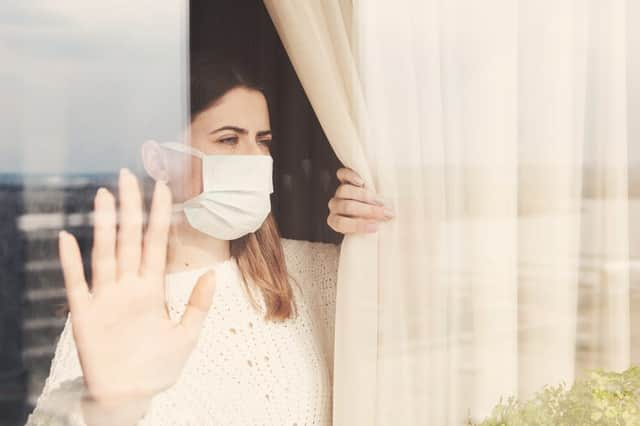If you don't self-isolate you could now be fined up to £10,000


From Monday, September 28, failing to self-isolate when instructed is illegal, carrying fines of up to £10,000.
The new measures come after survey results showing that many are not self-isolating when instructed.
What are the new rules?
Advertisement
Hide AdAdvertisement
Hide AdThe new law makes it illegal to ignore an official instruction to self-isolate in England, with fines starting at £1,000 for the first offence and climbing to £10,000 for serious offenders or repeated breaches.
Police officers will be enforcing the rules by performing spot checks in virus hot spots and among high-risk groups through use of “local intelligence” such as tip-offs from neighbours.
It has also been made illegal to knowingly give false information about close contacts to NHS Test and Trace.
The government hopes that similar laws will be introduced in Scotland, Wales and Northern Ireland.
Who does the law apply to?
Advertisement
Hide AdAdvertisement
Hide AdThe new law(s) apply to anyone who has tested positive for Covid-19, or who has been told - by NHS Track and Trace - that they have been into contact with someone who tested positive.
Anyone found to be preventing others from self-isolation is also liable for a fine.
This could include, for instance, business owners who threaten staff with redundancy over self-isolation.
The legal obligation to self-isolate does not apply to those using the new NHS Covid-19 app, which is anonymous.
Advertisement
Hide AdAdvertisement
Hide AdThe changes bring penalties into line with the £1,000 fines already in place in England for those who do not self-isolate after international travel to a country not on the UK’s “travel corridor” list.
Why has the new law been introduced?
Previously, self-isolation rules were guidance only, and not enshrined in law.
The stricter rules were prompted partially by a recent study commissioned by the government, which found that just 18 per cent of people with symptoms are self-isolating.
While intention to self-isolate was high, at around 70 per cent, only 11 per cent of people self-isolated after being asked to by NHS Test and Trace.
Advertisement
Hide AdAdvertisement
Hide AdThe most common reason cited for not self-isolating was that they needed to visit shops or because their symptoms improved.
Men and younger people were found to be the least likely to follow test, trace and isolate guidance.
Health Secretary Matt Hancock said of the new measures: “These simple steps can make a huge difference to reduce the spread of the virus, but we will not hesitate to put in place further measures if cases continue to rise”.
What support is available to those self-isolating?
A £500 payment will be made available to those who are on low incomes and can’t work because of self-isolation.
Advertisement
Hide AdAdvertisement
Hide AdAlmost four million people on benefits in England will be eligible for the one-off payment, which will additionally be backdated once the scheme is set up in their council area.
The new scheme is expected to be up and running by October 12.
If you need support with collecting shopping, medicine or need to chat to someone while you’re self-isolating, NHS Volunteer Responders can help. They can be contacted at 0808 196 3646 (8am to 8pm, everyday).
The NHS website has additional information on what support is available to you if you’ve been asked to self-isolate.
A version of this article originally appeared on our sister title, The Yorkshire Post.